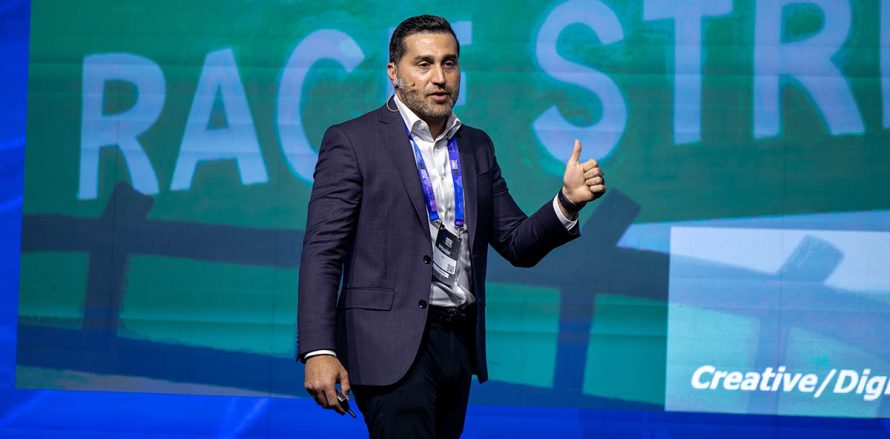Formula 1 is often regarded as the pinnacle of motorsport innovation, but beyond the high-speed action on track, technology is revolutionising the fan experience at events such as the Miami Grand Prix. From ticket sales to real-time operations on race day, the role of technology in ensuring the smooth execution of an event cannot be underestimated. In this talk, Ron Hecht Sr. Director of Formula 1 takes an in-depth look at how cutting-edge tools are enhancing the F1 experience, making the Miami Grand Prix a must-attend event for motorsport enthusiasts.
Enhancing customer experience with CRM Systems
“Whether you’re sitting in a certain grandstand, you have to receive a piece of communication that’s going to tell you where to park that day,” explained Ron Hecht. This segmentation ensures that each attendee receives tailored information based on their specific ticket type, minimizing the risk of confusion on race day.
The CRM system also plays a vital role in prospecting new business, identifying potential corporate clients for premium offerings like luxury suites. By leveraging data, F1 Miami can target the right companies, whether they are tech firms from Mexico City or manufacturing giants from Chicago.
Automating communications with Conversica
Managing communication with hundreds of thousands of fans would be impossible without automation. Enter Conversica, an automated messaging system that was introduced when the sales and service team was still small. “Conversica saved us a lot of time as our sales and service team grew,” noted.
Initially, Conversica was essential for engaging large groups of potential buyers, guiding them through the purchasing funnel. While human sales reps are now more involved, the tool remains an invaluable resource for handling high volumes of inquiries efficiently. This automation ensures that no fan is left without the information they need, keeping the customer experience smooth and professional from start to finish.
Leveraging Real-Time Data with PowerBI
In a fast-paced environment like the Miami Grand Prix, real-time data is essential for making informed decisions on the fly. F1 Miami relies on PowerBI, a tool that consolidates information from both the CRM system and ticketing platforms. “We track sales in real-time and know exactly how well we’re doing in certain products and categories,” shared Ron.
This real-time tracking extends beyond just ticket sales. Event operations are also monitored, with Wi-Fi usage data being an integral part of the process. “Are we noticing an area where there’s less scan rates? Are we having issues in that scanning area?” These insights help F1 Miami organizers address problems as they arise, ensuring that fans have a smooth experience from entry to exit.
Wi-Fi and the digital revolution
Connectivity is another crucial aspect of the fan experience. F1 Miami’s sprawling campus spans several square miles, and ensuring robust Wi-Fi coverage across the venue is no small feat. “People need to be connected… we have towers set up throughout the campus,” explained Ron.
The importance of Wi-Fi goes beyond social media sharing—it’s integral to the event’s operations. Fans rely on the F1 Miami app for digital tickets, real-time navigation, and even last-minute discounts on concessions. “If we didn’t have Wi-Fi, people wouldn’t get that messaging, and we would lose out on revenue,” the executive noted, referring to how they can push notifications to fans offering discounts on surplus items like hot dogs or merchandise.
Seamless ticketing and enhanced navigation
F1 Miami has fully embraced digital ticketing, eliminating the need for physical tickets. “We are one of the only races that have 100% digital tickets,” the executive proudly stated. This shift not only simplifies entry for fans but also allows for greater flexibility. Companies can easily transfer tickets to new guests if plans change last minute.
The app also serves as a digital guide, providing turn-by-turn directions to help fans navigate the complex layout of the venue. This feature ensures that even first-time attendees can find their way to specific grandstands or hospitality suites without hassle, improving overall satisfaction.
Conclusion: The Future of Sports and Technology
The technological advancements showcased at the F1 Miami Grand Prix are just the beginning of a broader digital transformation in sports events. From personalized CRM systems to real-time data analysis and seamless digital experiences, these innovations enhance both the operational efficiency and the customer experience.
As F1 continues to grow in popularity in the U.S., events like the Miami Grand Prix demonstrate how technology can elevate the fan experience, making it more immersive, interactive, and enjoyable. Whether it’s ensuring you’re in the right parking lot or offering last-minute discounts via push notifications, the intersection of sports and technology is creating a new standard for live events.
As F1 Miami shows, the future of fan engagement lies in the smart use of technology, and the best is yet to come.
Noticias Recientes
- Impact and challenges of B2C communication
- How Technology Drives the F1 Miami Grand Prix Experience
- Highlights 9th America Digital Congress Mexico 2024
- nuam is betting on technology and innovation to create sustainable development opportunities.
- Toku: Simplify every transaction with a payments infrastructure
 Contact
Contact 

Leave A Comment